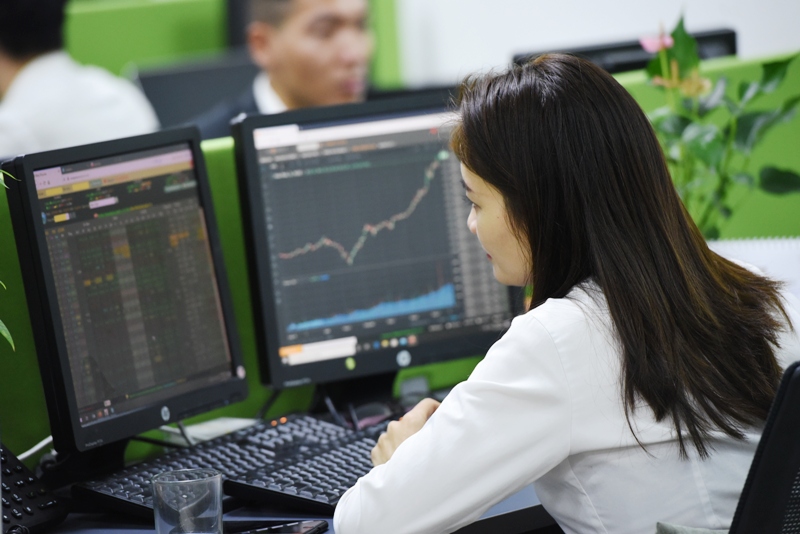VAFI proposes to privatize Vietnam Stock Exchange
The Vietnam Association of Finance Investors (VAFI) suggested to select a foreign stock exchange as a strategic shareholder that is responsible for transferring management technologies and training human resources.
The VAFI proposed the privatization of Vietnam Stock Exchange and the Vietnam Securities Depository (VSD) in a bid to enhance their corporate governance capabilities to the level comparable to regional peers.
| Investors at KIS Securities Company. Photo: Cong Hung |
The move came following VAFI’s concern over the frequent interruption of trading in the Ho Chi Minh City Stock Exchange (HOSE) in the past three months whenever liquidity in a trading session hit around VND15-17 trillion (US$653.6-740.8 million).
“The fact that investors could not place their orders in the stock market has directly impacted their lawful rights and jeopardized credibility of the stock market,” stated the VAFI.
In this regard, the VAFI suggested to select a foreign stock exchange as a strategic shareholder that is responsible for transferring management technologies and training human resources.
“Once completed the privatization process, these agencies would operate similar to a public firm and are independent from the Ministry of Finance (MoF),” stated the VAFI.
The VAFI attributed the issue to weak corporate governance of leaders of the HOSE, adding a similar situation happened a few years ago but the stock exchange was unable to provide an effective solution.
“The project of upgrading a new transaction system was launched since 2012 but has not been completed, with the timeline being unclear,” it said.
The VAFI also suggested the HOSE to hire foreign experts from major stock exchanges around the world in key positions.
“This solution is not expensive compared to HOSE’s revenue but brings huge benefits to the market,” the association continued.
“Vietnam’s stock market could not afford the weak capabilities of several people,” said the VAFI and added it is willing to help the MoF to find suitable personnel.
The VAFI also stressed the importance of not appointing leaders from the State Securities Commission of Vietnam (SSC), the country’s market watchdog, or any agencies under the MoF to hold key positions in HOSE, as “state administration is totally different from corporate governance.”
Minister of Finance Dinh Tien Dung previously ruled out the prospect of raising the minimum trading lot from 100 to 1,000 shares to ease the overload on the stock market.
Meanwhile, the minister advised firms to move their stocks from the HOSE to Hanoi Stock Exchange (HNX).
The MoF also plans to adopt the current software system on the HNX for HOSE, as this solution would take up to four months to complete and is expected to solve the issue substantially.













